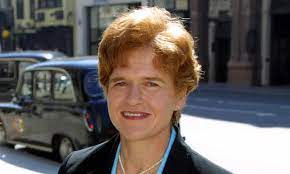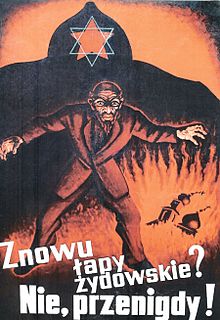Talk about tone-deaf.
A teaser for an “investigative” article by “The Journal News,” which serves several New York counties and whose online moniker is “Lohud,” consisted of the image of a clenched puppetmaster’s hand wielding pencils with strings controlling silhouettes of children, perched atop a large pile of dollars. The caption reads: “Rabbi holds the strings on $76M for East Ramapo School District… Coming Feb. 9.
The paper has a long history of what critics contend is unfair reportage about Orthodox Jews in Rockland County. That the imagery of the teaser, though, promoted a long-dishonored antisemitic canard was unarguable.Two days after gobsmacked readers began contacting the paper, its executive editor, Mary Dolan, issued an apology, explaining that its teaser’s “words and imagery unintentionally featured an antisemitic trope.”
“Members of our team, including myself,” she asserted, “did not recognize the stereotype that degrades and demeans Jews in the image and accompanying language.”
It is good to know that the paper was willing to admit its misstep, but not so good to know that seasoned journalists were unfamiliar, if indeed they were, with the time-dishonored imagery of the Jew as a conspiratorial puppet master, sinisterly manipulating others. It was, of course, much employed by the Nazis, and the canard it represents have stoked not only past pogroms but recent attacks on Jews, as in the case of the Pittsburgh synagogue shooter, who, in 2018, killed 11 worshippers in the largest modern mass shooting against Jews in America.
The Journal News has something of a history of “exposing” supposed sins of “rabbis” in Rockland County, with regard to the allocation of funds by the East Ramapo school board to local schools. The area has many Orthodox Jewish residents, and some of them serve on the board. As of 2020, there were approximately 11,000 students attending public schools in the district, but 27,000 students attending private schools, mostly Jewish ones.
The teased story, Ms. Dolan noted, “raises questions” about “how officials” (presumably the “rabbi”) “have chosen to allocate millions of dollars in public funds.”
The story finally appeared, after a delay, and, indeed, it contained “raised questions” – in quotations from people with records of animus against Orthodox institutions and individuals. What it didn’t contain was any factual assertion of wrongdoings. Because there have been none.
Yes, federal funds have been used to support services to children attending Jewish schools. But that is entirely in accordance with state formulas and federal laws mandating the provision of textbooks, school transportation and special education services to all school children — yes, dear Journal News, even Jewish ones.
Parents of nonpublic school children pay federal and state taxes like any citizen, and that includes the property taxes that do much to fund localities’ schools. In fact, since not all governmental services provided to public schools and their students are constitutionally available to nonpublic schools and their students, parents of the latter receive less in return for their taxes than parents of public school students.
The article’s target was Rabbi Hersh Horowitz, the executive director of a local group called the Community Education Center,” and, before the article was published, he released a statement explaining that “over the past year, Lohud has repeatedly attempted to slander me personally, and my organization as a whole.”
He went on to note that all contracts awarded by the East Ramapo Central School District have been through a rigorous “Request for Proposal” process, devoid of any private lobbying efforts; that his organization has been audited by state agencies multiple times, with no findings of misdeeds; that its most recent contract was cleared of any conflict of interest by NYS Commissioner of Education, Betty Rosa; that the its allocations, to be distributed over ten years, is federally funded and specifically earmarked – by the federal government – for private school children.
And, defiantly, he declared that his organization “will continue, undeterred and undistracted, to provide myriad essential educational services to thousands of children in multiple districts attending private schools across Rockland and Orange County.”
The Journal News hit piece didn’t mention Bruce Singer, the school district’s appointed monitor. But, before the article was released, Mr. Singer told the daily Jewish paper Hamodia that the claims made in Rabbi Horowitz’s statement are “100%” accurate. Singer also criticized the reporter of the then yet unpublished article for “misrepresenting the truth.” He also told the reporter that Rabbi Horowitz’s organization had been the subject of many audits, “and there have always been outstanding comments regarding his operation.”
In her apology for propagating the antisemitic image in the teaser, Ms. Dolan took pains to condemn “all forms of antisemitism in all ways that it is expressed.”
It’s a nice sentiment. But it brings to mind something William Saletan once wrote: “There’s a word for bias you can’t see: yours.”
The above essay appears at Times of Israel, here.









